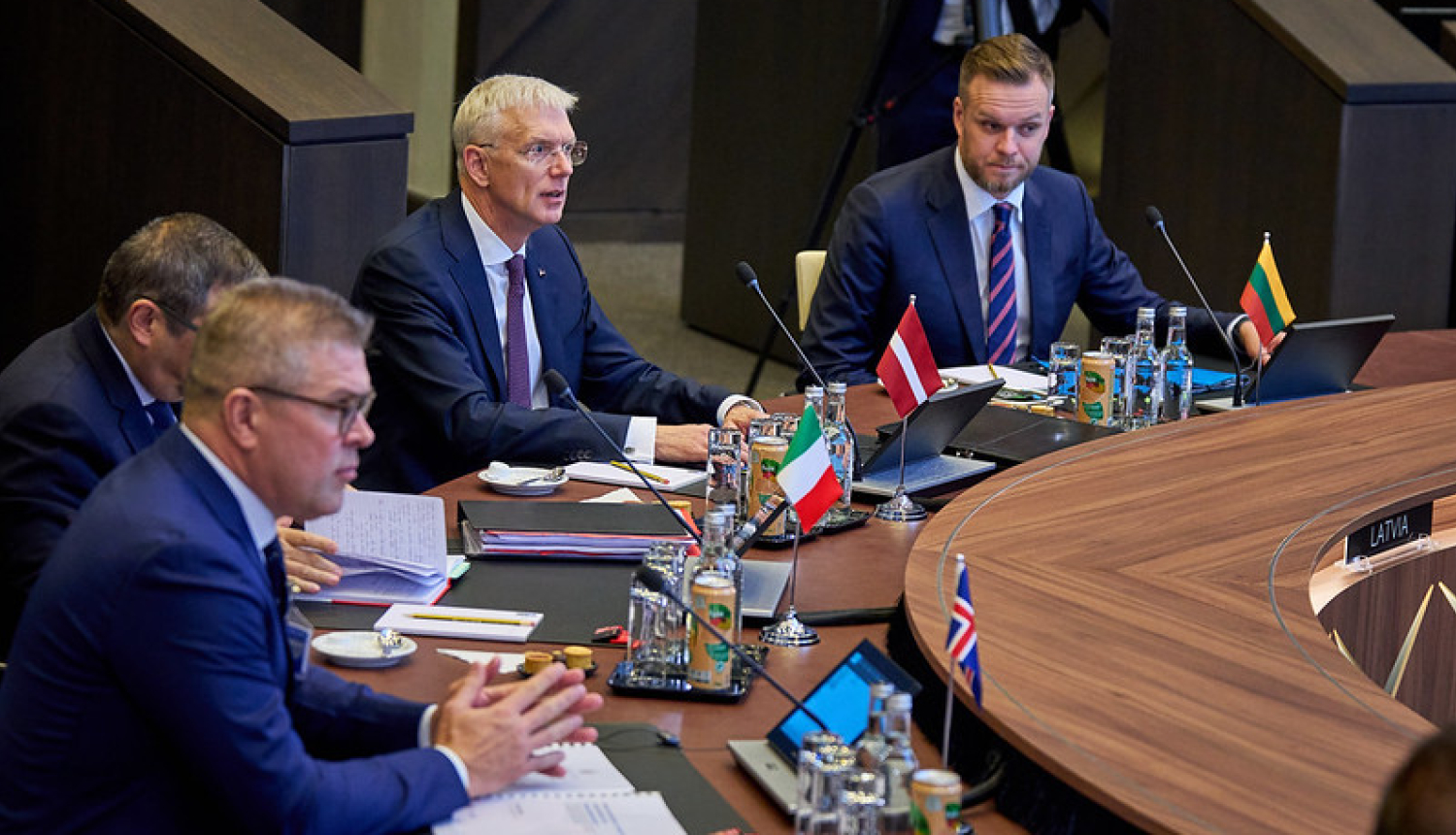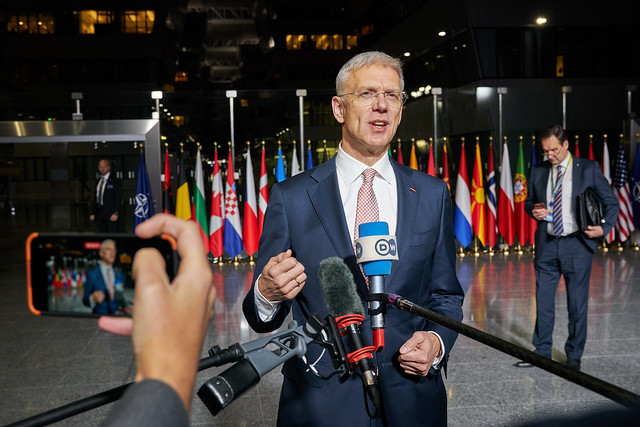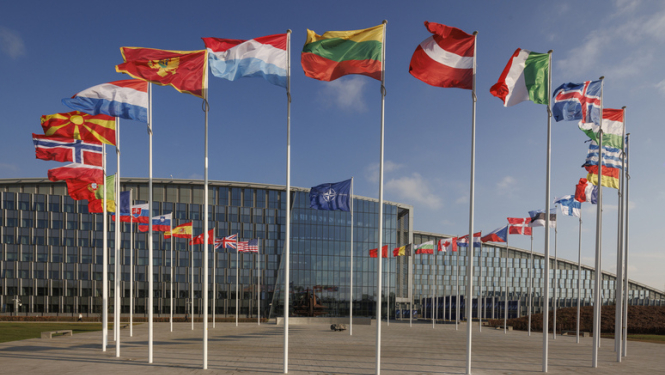On 28 and 29 November 2023 in Brussels, the Minister of Foreign Affairs, Krišjānis Kariņš, took part in the meeting of NATO Ministers of Foreign Affairs. The ministers discussed strengthening NATO’s deterrence and defence capabilities, the need to increase all kinds of support for Ukraine, and preparations for the NATO summit in Washington in July 2024, which will mark the 75th anniversary of the Alliance. At the meeting of the NATO-Ukraine Council, the Foreign Minister reaffirmed Latvia’s support for the integration of Ukraine into NATO.
“NATO's core mission is deterrence and defence of its territory from the first inch, from the first minute. The implementation of NATO’s new regional plans is being enhanced and consolidated by the day. At this point, in the run-up to the 20th anniversary of Latvia’s membership of NATO and to NATO’s 75th anniversary, the Alliance has significantly strengthened its capabilities to defend itself,” the Foreign Minister said.
The Allies have been steadily their increasing investment in defence. Next year, Latvia’s investment will approach 2.4% of its GDP. Other NATO Member States are also working to increase their defence investments to at least 2% in line with joint decisions. An increase in investment is particularly important for the development of the defence industry, thereby shortening supply chains.
In a joint discussion on Russia, Krišjānis Kariņš strongly advocated the need to agree on a comprehensive strategy for reining in Russia. “Russia is, and will be the most direct threat to Allied security. We must work to prevent any attempts by Russia to endanger us militarily and to divide our societies with various hybrid operations.”
While addressing the conflict in the Middle East, the ministers noted that every effort must be made to prevent its escalation into a broader regional conflict. In discussions on the challenges posed by China to Euro-Atlantic security, Foreign Minister Kariņš emphasised the need for NATO to take a more decisive action.
At a working session on security challenges in the Western Balkans, the ministers discussed the recent violent clashes in Kosovo, the increasing secessionist rhetoric in Bosnia and Herzegovina, as well as Russia’s attempts to destabilise the countries of the region. In order to prevent escalation, NATO Member States decided in early October to send additional forces to the NATO-led peacekeeping operation in Kosovo (KFOR).
“The Western Balkans region is an integral part of the Euro-Atlantic security architecture. We call on Serbia and Kosovo to return to the table of EU-led negotiations in order to address the differences between them through diplomatic means. We welcome the decision to strengthen the KFOR mission, and we shall continue to contribute to peacekeeping efforts in the region.”
The Latvian contingent of 130 soldiers has been operating within KFOR from 2021. It is the largest representation of the National Armed Forces outside the territory of Latvia. In September, the Saeima (Latvian Parliament) decided to extend the KFOR mandate for the NAF contingent until December 2025.
As part of the NATO event, the NATO-Ukrainian Council was convened for its first meeting in the format of foreign ministers, with Foreign Minister Dmitro Kuleba representing Ukraine. The allies pledged their readiness to continue supporting Ukraine, and further steps to strengthen NATO-Ukrainian cooperation were discussed. The Latvian Foreign Minister underlined that “Latvia will stand with Ukraine until its victory. Our support is important at the front line, as well as in rebuilding Ukraine and on its path to NATO. We welcome the progress made by Ukraine in implementing reforms under the conditions of active hostilities.”
Krišjānis Kariņš welcomed the Foreign Ministers of the Baltic and Nordic countries to the Permanent Delegation of Latvia to NATO to discuss future cooperation. “Latvia is coordinating the Baltic–Nordic cooperation this year, which will go down in history due to Finland’s full membership of NATO. This makes the security of our region considerably stronger. I hope the process of Sweden’s accession to the Alliance will also be concluded shortly, which will consolidate stability in the transatlantic space and our cooperation.”








